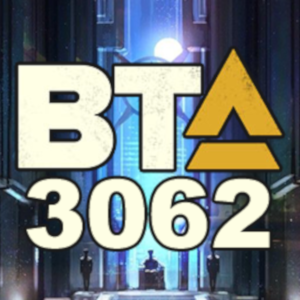Difference between revisions of "Category:Lasers"
m (→Chemical Lasers: added strafing information; reference.) |
(added XPulse Laser info.) |
||
| Line 13: | Line 13: | ||
=== X-Pulse Lasers === | === X-Pulse Lasers === | ||
| − | '''X-Pulse Lasers''' are an attempt by | + | '''X-Pulse Lasers''' are an attempt by [[Federated Commonwealth]] technicians to increase the range of Pulse Lasers to compete with the longer ranges of similar Clan models. X-Pulse lasers are not an new weapon per se, but an upgrade to Pulse Lasers that pushes extra energy through the system in order to extend the range. X-Pulse lasers also build up tremendous heat but this has been considered a necessary drawback for their extended range. The [[Large_X-Pulse_Laser|Large]], [[Medium_X-Pulse_Laser|Medium]], and [[Small_X-Pulse_Laser|Small X-Pulse Lasers]] are currently still in the prototype stage.<ref>''[[Maximum Tech]], p. 92''</ref><ref>''[[Tactical Operations]], p. 321''</ref> |
=== Variable Speed Pulse Lasers === | === Variable Speed Pulse Lasers === | ||
Revision as of 21:57, 19 January 2010
Laser stands for "Light Amplification by Stimulated Emission of Radiation", or a device that focuses an amplified beam of light on a small surface area. Lasers are popular weapons because they're cheap compared to other energy weapons and do not rely on ammunition, which simplifies logistics. Laser rifles are one of the most effective weapons infantry units have when fighting vehicles or 'Mechs.
Contents
Standard Lasers
Standard lasers cause damage by firing an intense beam of light at a target, flooding concentrated energy in the form of heat, which can melt material and overwhelm heat-sensitive electronics. All laser types are typically grouped into three broad classes based on their damage potential:
Pulse Lasers
Pulse lasers differ from traditional laser weaponry, in that instead of firing one powerful beam, they maintain several laser beams fired off in quick succession. While offering an overall increased rate of fire, the heat output also increases accordingly. Pulse lasers increase damage because they allow vaporized armor to dissipate from the location of damage. This allows subsequent pulses to reach the target area without being diffused by the vapor.
Both the Inner Sphere and Clans use the three most common size of pulse laser (Small, Medium, Large). The Clans also use the Micro Pulse Laser on ProtoMechs.
X-Pulse Lasers
X-Pulse Lasers are an attempt by Federated Commonwealth technicians to increase the range of Pulse Lasers to compete with the longer ranges of similar Clan models. X-Pulse lasers are not an new weapon per se, but an upgrade to Pulse Lasers that pushes extra energy through the system in order to extend the range. X-Pulse lasers also build up tremendous heat but this has been considered a necessary drawback for their extended range. The Large, Medium, and Small X-Pulse Lasers are currently still in the prototype stage.[1][2]
Variable Speed Pulse Lasers
Developed by Word of Blake technicians, the Variable Speed Pulse Laser (VSP) family has only been seen on a few units. Similar to a Snub-Nose PPC the VSP inflicts more damage at close range in exchange for a dropoff in damage at longer ranges. Unlike the Snub-Nose PPC, which fires a single bolt of energy, the modified pulse laser system can alter the speed of the pulses fired based on the distance to the target. This allows the Variable Speed Laser to generate more damage and increase the odds of a hit at short range, but the damage and hit probabilities drop off at medium and long range.[3]
Variable Speed Lasers are currently available to the Word of Blake and Free Worlds League Military in small, medium, and large sizes.
Extended Range Lasers
As the name suggests, the Extended-Range (or ER) laser variants increases the power of the beam to project it to much farther ranges. The power necessary to facilitate the production of such generates a greatly increased quantity of waste heat.
Both the Inner Sphere and Clans use the three most common size of Extended Range laser. Typically the Clan versions of these weapons inflict more damage to the target than their Inner Sphere counterparts. The Clans also use the ER Micro Laser on ProtoMechs.
Heavy Lasers
Clan Star Adder developed the family of Heavy Lasers in 3059 as a way of packing more punch into a relatively small package. All Heavy Lasers, however, build a tremendous amount of heat and interfere with a 'Mech's sensors. Only the Clans use Heavy Lasers.
Chemical Lasers
In the late 20th and early 21st century, humanity developed the first lasers for combat units. Based on chemical processes, these lasers were bulky and expensive. The chemicals used to create the laser beam were also toxic and dangerous to handle. For these reasons, when reliable fusion powerplants became available, chemical laser systems were retired, and became little more than a footnote in weapon development history.
In 3059, the Clan Hell's Horses Scientist and Technician Castes received a mandate from their Khan: Find a way to make lasers that didn't need power amplifiers. With the preponderance of combat vehicles in their Touman, the Hell's Horses Khans wanted to devote more vehicle tonnage to weapons and armor instead of the power amplifiers required by units lacking fusion engines. The scientists and technicians weren't able to find any way to meet their Khans instructions until one of them stumbled across the ancient accounts of chemical lasers. Though the chemical processes still required toxic chemicals, improvements in materials technology allowed the Hell's Horses Scientists and Techs to create an improved lasing chamber that could accept "shells" that contained the toxic chemicals and isolated them from the crew. These "chemical shells" were then mated to an ammunition handling system derived from autocannons long used by the Horses, allowing the chemical laser systems to fire a beam of laser energy at a target without requiring a fusion engine or power amplifiers.
The chemical laser was deemed a success by the Khans, and production of Small, Medium, and Large variants started immediately. Though these chemical lasers have the performance profile of standard Inner Sphere laser systems and can actually run out of ammunition, they can be refitted onto ICE or Fuel Cell powered vehicles without requiring additional power amplifiers. In combat, the chemical lasers have more in common with autocannon or other ballistic weapons than fusion powered lasers, including the fact that they can't be used in strafing attacks.[4]
The Naval Laser (NL) systems used aboard WarShips and planetary defense systems (SDS) are massive versions of the standard laser systems used on 'Mechs and other combat vehicles. In addition their huge size makes them impractical for targeting small craft or AeroSpace Fighters; Like their Naval PPC and Naval Autocannon counterparts they can only target sub-500 ton craft with extreme difficulty.[5][6] In addition, Naval Lasers were often used in by Terran Hegemony Space Defense Systems to defend important worlds.[7]
Infantry Laser Weapons
| This Section looks to be a Stub This section is a stub (i.e., in need of additional material). You can help us by expanding it. Please remove this tag when that effort is complete. |
References
- ↑ Maximum Tech, p. 92
- ↑ Tactical Operations, p. 321
- ↑ Tactical Operations, p. 321
- ↑ Tactical Operations, p. 320
- ↑ Technical Readout: 2750, p. 122: Explicitly states that these weapons may only fire on DropShip-sized or larger targets.
- ↑ Total Warfare, p. 303, provides to-hit penalty to capital weapons info.
- ↑ BattleSpace Rulebook, p. 38
Subcategories
This category has the following 2 subcategories, out of 2 total.
L
Pages in category "Lasers"
The following 45 pages are in this category, out of 45 total.
E
I
L
M
S
Subcategories
This category has the following 2 subcategories, out of 2 total.
L
Pages in category "Lasers"
The following 45 pages are in this category, out of 45 total.


